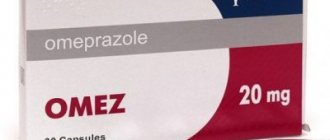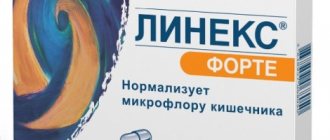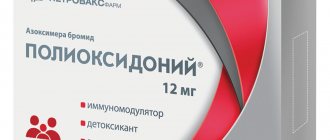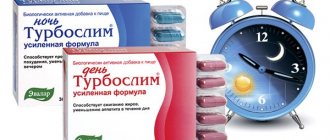Brief description of the drug
Frisium is a well-known representative of the clinical and pharmacological group of benzodiazepine derivatives. It was synthesized for the treatment of patients with excessive nervous excitability and anxiety, neuroses, and psychoses. But soon its ability to stop and prevent epileptic seizures was noticed. Therefore, the scope of its application has expanded, including in pediatrics.
The list of contraindications for Frisium is very wide, which explains the presence of a large number of contraindications for the drug. And due to pronounced, rapid psychological and physical addiction, the drug was withdrawn from free sale.
Active composition and release factors
Frisium is produced by the German manufacturer HOECHST in the form of round tablets with a score for convenient dosing. They are placed in 10 pieces in blisters made of metallized foil. The amount of active ingredient in tablets corresponds to 5, 10 or 20 mg. Inside the cardboard box, in addition to 3 blisters, there are detailed instructions for using the tranquilizer.
The active ingredient in Frisium is clobazam. The auxiliary composition is represented by chemically inert ingredients. They act as stabilizers and preservatives and form the basis of the tablet. Microcrystalline cellulose, titanium dioxide, talc and other components ensure the maximum possible absorption of clobazam. At the same time, they protect the active ingredient from destruction by aggressive gastric juices.
Pharmacological properties
The therapeutic effect of the tranquilizer is based on the ability of clobazam to stimulate benzodiazepine receptors. When in contact with the amygdala complex in the limbic system, it significantly improves the mental state of the patient. Frisium quickly eliminates anxiety, fear, emotional stress, and restlessness. The drug is characterized by the following pharmacological properties:
- central muscle relaxant;
- anticonvulsant;
- sedative;
- hypnotic.
The drug reduces symptoms of neurological origin. It relaxes skeletal muscles, eliminating cramps and painful spasms.
After taking the tablet, the active substance enters the systemic bloodstream after 15-30 minutes (depending on the amount of food in the stomach). Clobazam binds to serum proteins and is then transported to target organs. It is metabolized by liver cells and then evacuated from the body with each bladder emptying.
Indications for treatment
The indication for taking Frisium is a pathological deterioration in a person’s psycho-emotional state. Its typical clinical manifestations are anxiety, acute or chronic feelings of fear, agitation, tension, and increased irritability.
In the treatment of epilepsy in adults and children, Frisium is used only in combination with other drugs.
Doctors include the drug in therapeutic regimens when diagnosing insomnia, organ neurosis, migraines, and menopausal disorders in patients.
Analogues and substitutes of the drug
Structural analogues of Frisium are not produced by any pharmaceutical factory in Russia. In Europe and the USA, drugs with identical compositions are produced under the names Castilium, Clarmil, Frizin, Maginol, Sentil. Their import into our country is punishable by law. For the needs of medical institutions, active analogues of Frisium are produced, mainly benzodiazepine derivatives.
| A drug | Manufacturer | Active substance | Cost, in rubles |
| Clonazepam | REMEDICA | clonazepam | from 100 |
| Pregabalin | CJSC "Gedeon Richter-RUS" | pregabalin | from 350 |
| Gabapentin | PIK-PHARMA | pregabalin | from 400 |
| Hydroxyzine Canon | Pharmaceutical factory "Canon" | hydroxyzine | from 250 |
| Mezapam | JSC "Organika" | medoazepam | from 200 |
All drugs are substitutes for Frisium and often become the first choice in the treatment of seizures and mental disorders. They are relatively safe, but are also sold from pharmacies only after presenting a prescription from a doctor. Independent replacement of Frisium with analogues is fraught with severe complications.
What does the government intend to do about the problem?
After the summer events, it became impossible to ignore the situation. Prime Minister Dmitry Medvedev spoke on social networks about medications for children suffering from chronic diseases with pain and convulsions. According to him, manufacturers themselves do not register them in Russia.
Health Minister Veronika Skvortsova announced on September 13 that Sanofi will submit documents to register the drug Frisium. “Sanofi is ready to submit a dossier for registration within a month. Taking into account the fact that the drug has been in circulation for more than 20 years, this will be an accelerated, very fast registration without repeating clinical studies, using existing documents,” she promised.
Absolute and relative contraindications
An absolute contraindication to the use of Frizium is individual intolerance to clobazam or one of the auxiliary ingredients. The drug should not be used in the presence of the following pathological conditions:
- myasthenia gravis (muscle weakness);
- severe liver dysfunction;
- breathing problems, especially during sleep (apnea);
- spinal or cerebellar ataxia;
- acute intoxication with alcohol-containing drinks, sleeping pills, analgesics, antipsychotics, antidepressants.
The list of absolute contraindications also includes the first trimester of pregnancy and lactation. Frisium also has age restrictions - in pediatrics it is used in the treatment of children over 3 years of age. The drug should be used with caution in elderly patients. In the presence of chronic kidney pathologies, treatment with Frisium should be accompanied by constant monitoring of their functional parameters.
CLOBAZAM
Composition and release form
Clobazam. Tablets (10 mg, 20 mg).
pharmachologic effect
Clobazam is a tranquilizer from the group of benzodiazepine derivatives. It has anxiolytic, sedative, central muscle relaxant and anticonvulsant effects.
Indications
— states of anxiety; — sleep disturbances in neurotic disorders; - psychovegetative or psychosomatic disorders; - epilepsy (as an additional drug in combination with anticonvulsants).
Application
The daily dose for adults is 20-30 mg (in 2 doses or once at night). If necessary, the dose can be increased to 60 mg/day. For elderly patients, the dose should not exceed 20 mg/day. The daily dose for children 3 years of age and older is 50% of the adult dose.
Clobazam is prescribed with extreme caution for myasthenia gravis, spinal and cerebellar ataxia, patients with impaired liver and/or kidney function, bronchial asthma, as well as patients whose activities require increased attention and rapid speed of motor and mental reactions.
Considering the possibility of developing drug dependence with long-term use of clobazam, the question of the advisability of long-term treatment (more than 4 weeks) should be decided individually. Considering the possibility of developing withdrawal syndrome upon completion of the course of treatment, the dose of the drug should be reduced gradually.
It is not recommended to prescribe clobazam to children under 3 years of age, however, according to strict indications, it can be used to achieve an anticonvulsant effect.
Pregnancy and lactation
The use of the drug in the second and third stages of pregnancy is possible only if the expected benefit to the mother outweighs the potential risk to the fetus.
Side effect
Feeling of fatigue, dizziness, slight tremor of the fingers, dry mouth, constipation, anorexia, nausea, bronchospasm, AR in the form of skin rash, weight gain, loss of libido; rarely - ataxia, headache, muscle weakness, slow reaction speed, drowsiness, confusion, paradoxical reactions.
When using the drug in large doses, especially for a long time, reversible articulation disorders, diplopia, and nystagmus may develop; After prolonged use of the drug in elderly patients, in some cases, disturbance of consciousness and respiratory function may occur.
Contraindications
- respiratory dysfunction due to depression of the respiratory center; - liver dysfunction; - acute poisoning with alcohol, hypnotics, analgesics, antipsychotics, antidepressants, lithium salts; - history of drug addiction; — I TrM of pregnancy; lactation period; early childhood (up to 6 months); - hypersensitivity to the drug.
Legislative regulation of trade turnover
Why Frisium is banned in Russia - it’s all about the pronounced side effects of the benzodiazepine derivative. Even using it in strict accordance with the dosage regimen does not guarantee the absence of painful addiction. For addiction to form, 2-3 weeks of constant use of a sedative is often sufficient. Below are the side effects that explain why it is not available in pharmacy chains:
- suicidal thoughts;
- visual and auditory hallucinations.
Frisium is included in Russia in the list of substances with psychotropic activity that are in demand among people with drug addiction. If it is purchased, stored, transported or processed without proper permits from the Pharmaceutical Inspectorate, then Article 228 of the Criminal Code applies to violators. Selling the tranquilizer in pharmacies without a doctor's prescription is strictly prohibited.
In September of this year, some pharmaceutical factories were allowed to purchase Frisium in limited quantities.
But its distribution is possible only at the request of regional medical centers for pediatric needs. Deliveries of Frisium to Russia are still at the planning stage.
Is this medicine sold in Russia?
No. The medicine has lost its registration number and is no longer sold in Russia (previously, Frizium was part of the group of prescription drugs). To date, this drug has not been registered in the Russian Federation and does not have a license. It contains the substance clobazam, which is included in the third list of Russian Government Decree No. 681, which restricts or prohibits the circulation of narcotic drugs, their precursors and psychotropic substances on the territory of the Russian Federation.
Article on the topic Finding a cure for cancer. Will there be a breakthrough in oncology in Russia?
Proper Use
Compliance with the recommendations of the instructions for use of Frizium is mandatory. The optimal daily dose for the treatment of psycho-emotional instability and neuroses is 20 mg. It can be one-time or divided into 2-3 doses. For acute mental disorders, the treatment of which is carried out in a hospital, the dose is sometimes increased by 3-5 times. The best time to take Frisium tablets is before bed.
The dosage regimen is usually determined by the attending physician. It necessarily takes into account the type and severity of the disease, the severity of symptoms, the patient’s age, and the presence of chronic pathologies. When calculating single and daily dosages for children, the doctor also focuses on the weight and age of the child. The treatment of epilepsy has its own characteristics:
- the initial daily dose does not exceed 15 mg;
- it gradually increases to 80 mg;
- after the patient’s well-being improves, the dose is reduced to 20 mg.
The duration of the therapeutic course of Frizium varies from 4 weeks to several months. If necessary, treatment is resumed after a short break.
Specific side effects
The severity of the side effects of Frisium directly depends on the dosages used. For example, the use of more than 40 mg of a drug is often accompanied by speech disorders, diplopia, nystagmus, weight gain, decreased libido, and menstrual disorders. But the negative effect of the drug is possible even when taken in minimal doses. What are the side effects of a course of treatment with Frisium:
- fatigue;
- disturbances in concentration;
- slow mental and motor reactions;
- drowsiness;
- dry mouth;
- chronic constipation;
- anorexia.
Gastrointestinal disorders occur less frequently, including attacks of nausea, flatulence, and epigastric pain. Local adverse reactions resemble the symptoms of urticaria - rash, swelling and redness of the skin, itching, burning.
Frisium 10mg caps No. 30
Description
Active ingredient, group:
Clobazam, Antidepressant
Dosage form:
pills
Contraindications:
The use of Frisium is contraindicated in the following cases:
in children under 3 years of age, in patients with hypersensitivity to benzodiazepines and any excipients of the drug,
in patients in a state of acute poisoning with alcohol, sleeping pills, painkillers, antipsychotics, antidepressants, lithium salts,
in patients with drug or alcohol dependence (increased risk of developing dependence), in patients with myasthenia gravis (risk of worsening muscle weakness),
in patients with severe respiratory failure (risk of exacerbation), in patients with sleep apnea syndrome (risk of exacerbation),
in patients with spinal and cerebellar ataxia,
in patients with severe liver failure (risk of condensation encephalopathy),
during pregnancy and lactation.
Directions for use and dosage:
The drug is prescribed orally, regardless of food intake. The daily dose of Frisium for adults for the treatment of anxiety is 20-30 mg, usually divided into two doses, with the bulk to be taken in the evening.
To achieve optimal control of epileptic seizures in children and adult patients, it is recommended to begin treatment with low doses of the drug, followed by gradual titration to an effective dose.
Pharmachologic effect:
Frisium refers to psychotropic drugs, benzodiazepine derivatives, acting primarily on the central nervous system. Unlike antipsychotic drugs, it does not cause a pronounced antipsychotic effect.
It has anxiolytic, sedative, hypnotic, muscle relaxant and anticonvulsant effects.
Side effects:
Frisium can cause sedation, drowsiness, fatigue (especially at the beginning of treatment and when using high doses), slower reaction time, decreased excitability, confusion, headache, dizziness, muscle weakness, ataxia, tremor of the fingers; slow or slurred speech (articulation disorders), unsteadiness of gait and other motor dysfunctions, loss of sexual desire. These reactions usually occur due to the use of high doses of the drug or with long-term treatment and are reversible. With prolonged use, especially in elderly patients, signs of impaired consciousness may be observed, sometimes in combination with respiratory disorders.
Antegrade amnesia rarely occurs, especially when using high doses of the drug. This type of amnesia usually manifests itself in inappropriate behavior of patients.
When using Frisium, especially in old age, paradoxical reactions may occur in the form of anxiety, increased irritability, excitability, aggressiveness, difficulty falling asleep, acute agitation, delirium, fits of rage, nightmares, hallucinations, psychotic reactions, suicidal tendencies, frequent muscle spasms (to the point of convulsive seizures). If such reactions occur, treatment should be stopped immediately.
If the patient has a history of one or another form of depression, the use of the drug can significantly alleviate its course.
Tolerance and psycho-physical dependence can develop only with prolonged or uncontrolled use of the drug. It must be remembered that sudden cessation of therapy is not recommended due to the development of withdrawal syndrome.
Diplopia and nystagmus may occur. Such reactions usually develop when using high doses of the drug or with its long-term use and are reversible.
Frisium may cause respiratory depression, especially when administered in high doses.
From the gastrointestinal tract, dry mouth, constipation, decreased appetite, nausea, and sometimes vomiting are possible.
Isolated cases of skin reactions such as rash and urticaria have been observed. Very rarely - Stevens-Johnson syndrome, toxic epidermal necrolysis, including death.
Weight gain is possible, especially with high doses or with long-term treatment.
Special instructions:
When prescribing Frisium to patients with personality disorders, special care must be taken. This applies to patients who are depressed and people with suicidal tendencies, because the use of the drug aggravates these conditions.
Drinking alcohol is not recommended.
The occurrence of anterograde amnesia may occur.
Elderly patients may experience an increased tendency to various negative reactions that develop due to vascular insufficiency (drowsiness, dizziness, muscle weakness, changes in blood pressure), which requires dose adjustment of Frisium.
What should you pay attention to?
Soon Frisium will again be used in our country for medicinal purposes. Therefore, it is advisable to learn about its features in advance. Despite the effectiveness of the drug, there are also pitfalls in therapy. So, if there are no noticeable improvements after 2 weeks of therapy, you should inform your doctor. He will clarify the diagnosis and, if necessary, adjust the therapeutic regimen. The patient will be prescribed a drug with other active ingredients. Parents should constantly monitor the child’s well-being and consult a doctor if side effects become more severe.
Freesium is absolutely incompatible with alcoholic beverages. During treatment, it is necessary to refrain from driving a car or performing work that requires increased concentration. The tranquilizer should not be taken by people with suicidal tendencies, including a history.
How to get freesium, the Ministry of Health told parents
The Ministry of Health of the Russian Federation has approved instructions for parents whose children need unregistered psychotropic drugs. We publish the text of the document (see below). Previously, brief instructions on this topic were compiled by the Moscow Department of Health for families with seriously ill children living in the capital.
We are talking about drugs that are currently being purchased abroad to provide children in need under a temporary scheme. These are Diazepam (rectal solution), Clobazam (capsules, tablets), Midazolam (oromucosal solution), Phenobarbital (elixir, injection solution). In the future, it is planned to provide patients with these and other medicines on an ongoing basis by registering them or organizing the production of analogues in Russia.
The handout for parents consists of two parts. The first of them is intended for families who have already received a conclusion from a council at a federal medical institution about the child’s need for one of the specified medications. The second part contains instructions for parents (legal representatives) of children who have not yet received a consultation conclusion - but “apparently, need these drugs because the prescribed registered drugs or their combinations in various combinations for the treatment of epilepsy turned out to be ineffective and / or it is necessary use of a pediatric form of a psychotropic drug.”
For questions about which of the lists (the first or second section of the memo) the child is on, as well as to appeal the refusal, it is recommended to contact the local health authorities or Roszdravnadzor. The delivery of the first batch of medicines is expected in October, the Ministry of Health reported.
FOR PARENTS OF CHILDREN WHO NEED UNREGISTERED PSYCHOTROPIC DRUGS
Memo
Dear parents!
This memo consists of two sections. The first is for those parents (legal representatives) whose children already have a conclusion from a medical commission of a medical organization of a regional, municipal or private healthcare system and a protocol from a council of a federal medical organization on the need to prescribe psychotropic drugs unregistered in the Russian Federation - one or more of the following: Diazepam ( rectal solution), Clobazam (capsules, tablets), Midazolam (oromucosal solution), Phenobarbital (elixir, injection solution).
The second section is for parents (legal representatives) of children who, apparently, need these drugs because the prescribed registered drugs or their combinations in various combinations for the treatment of epilepsy have proven ineffective and/or the use of a pediatric form of a psychotropic drug (elixir) is necessary , rectal solution, oromucosal solution), but there are no conclusions of medical commissions and protocols of federal councils yet.
For parents (legal representatives) whose children have already undergone medical commissions from a medical organization of a regional, municipal or private healthcare system and consultations from a federal medical organization and confirmed the need to prescribe psychotropic drugs unregistered in the Russian Federation - Diazepam (rectal solution), Clobazam (capsules, tablets) ), Midazolam (oromucosal solution), Phenobarbital (elixir, solution for injection).
- After the first batch of drugs is imported into the Russian Federation (expected in October 2022), regional health authorities (regional ministries, health departments, health committees) will notify parents (legal representatives) in advance about the place and time of free distribution of drugs. If you and your child currently do not live at the address indicated in the conclusion of the federal council, you should inform the health authority of the region whose address is indicated in the conclusion in advance.
- To receive the drug, you must have a passport, a child’s birth certificate, and, if necessary, a document confirming that you are the child’s legal representative.
- Upon receipt of the drug (for one quarter), you will be asked to sign a receipt in duplicate stating that:
- You received the drug (drugs, if several are prescribed).
- You are warned that quality control of the drug (drugs, if several are prescribed) was not carried out on the territory of the Russian Federation.
- You are warned that the drug should be given to the child in accordance with the prescription specified in the protocol of the federal consultation.
- The drug should be stored in accordance with the instructions.
- The drug must not be transferred to other persons for use and (or) sold. In cases where a person illegally acquires, stores, transports, even without the purpose of sale, psychotropic drugs (depending on the size (weight) of the substance, the act entails administrative or criminal liability.
- If there is a balance of drugs, they should be transferred to the institution where you received the drug.
- If undesirable reactions occur or if the drug is ineffective, you must inform your doctor (local pediatrician, neurologist). It is also possible to send information about this by filling out the application form on the Roszdravnadzor website (https://www.roszdravnadzor.ru/services/people) or to the postal address: 109074, Moscow, Slavyanskaya Square, 4, building 1. This is very important , since the drug has not yet been registered.
- If you carry the drug with you, for example, when going to the country, have with you either the conclusion of the medical commission, or the protocol of the federal consultation, or the receipt indicated above.
- The drug is given for three months. Therefore, 2.5 months after receiving the drug, you should contact your doctor and inform about the need to receive the drug for the next three months, he will organize the transfer of this information to the regional health authority (regional ministry, health department, health committees), which will notify you in advance of the place and time of free distribution of drugs.
- During treatment with these drugs, the child should be under medical supervision.
For parents (legal representatives) of children who need these drugs, but there are no conclusions of medical commissions and protocols of federal councils yet.
- If your child is recommended one or more of the following unregistered psychotropic drugs - Diazepam (rectal solution), Clobazam (capsules, tablets), Midazolam (oromucosal solution), Phenobarbital (elixir, injection solution) you need to contact your local clinic or other a medical organization providing specialized medical care to children in the field of “neurology” or palliative medical care, to obtain the conclusion of a medical commission. If you think that the drug is indicated for a child because the prescribed registered drugs or their combinations in various combinations for the treatment of epilepsy turned out to be ineffective and/or the use of a pediatric form of a psychotropic drug (elixir, rectal solution, oromucosal solution) is necessary, then you You can also contact a clinic at your place of residence or another medical organization that provides specialized medical care for children in the field of “neurology” or palliative care, to decide whether there are medical indications for prescribing these drugs and to obtain an opinion from a medical commission if the drugs shown.
- If your child is already being observed in a federal clinic, then a medical commission and consultation may be held at the clinic regarding the prescription of these drugs to him, and the clinic must inform the regional health authority at the child’s place of residence about the fact of prescribing unregistered psychotropic drugs to him, indicating the name drug, dosage, method of administration and annual requirement.
- If necessary, the attending physician at the district clinic or other medical organization where the child is being observed may refer the child to a specialized medical organization, including a hospital, for additional examination (if necessary) and/or to consider whether your child has indications to the use of a psychotropic drug unregistered in the Russian Federation and dose selection.
- If there are grounds, the medical commission of the medical organization makes a decision on whether or not the child has medical indications for prescribing an unregistered psychotropic medication.
- You will be asked to sign a document agreeing to the processing of personal data, including sending it by email, since the protocol of the medical commission will be sent to the regional health authority and then to the Ministry of Health of the Russian Federation.
- The protocol of the medical commission (original or certified copy), containing the proposed treatment regimen for an unregistered psychotropic drug, indicating the release form, dosage and annual requirement, is sent to the ministry (department, committee) of health of a constituent entity of the Russian Federation, and from there to the Ministry of Health of the Russian Federation.
- The Ministry of Health of the Russian Federation sends the protocol of the medical commission to a federal medical organization with experience in treating severe forms of epilepsy in children to conduct an in-person or remote consultation of doctors. A council of doctors from a federal medical organization makes a final decision on prescribing a psychotropic medication to a child that is not registered in the Russian Federation and sends the protocol to the Ministry of Health of the Russian Federation.
- Within a month, the Ministry of Health of the Russian Federation collects protocols of medical commissions (federal councils) from all regions of the country, then sends them to the Ministry of Industry and Trade of the Russian Federation.
- The Ministry of Industry and Trade of the Russian Federation, if necessary, ensures the preparation of additional acts of the Government of the Russian Federation necessary for the import into the territory of the Russian Federation of a psychotropic drug not registered in Russia.
- FSUE "Moscow Endocrine Plant" imports medicines into the territory of the Russian Federation and delivers them to the regional authorized organization subordinate to the ministry (department, committee) of health of the subject of the Russian Federation in which the children to whom these drugs are prescribed live.
- The Ministry (department, committee) of health of a constituent entity of the Russian Federation notifies parents about the receipt of the drug, the place and time of its receipt. The procedure for obtaining the drug is described above.
- If you do not agree with the decision of the attending physician, you can seek help from the chief physician or deputy chief physician for clinical expert work.
For questions about which of the lists (the first or second section of the memo) your child is on, as well as in case of refusal to provide medications for medical indications, you can send a reasoned appeal to the executive authority in the field of health protection of the constituent entity of the Russian Federation , in which you live, or to Roszdravnadzor at the address: https://www.roszdravnadzor.ru/services/people), postal address: 109074, Moscow, Slavyanskaya Square, 4, building 1, or hotline phone number 8 800 550 99 03.
We wish you and your children health and prosperity!









